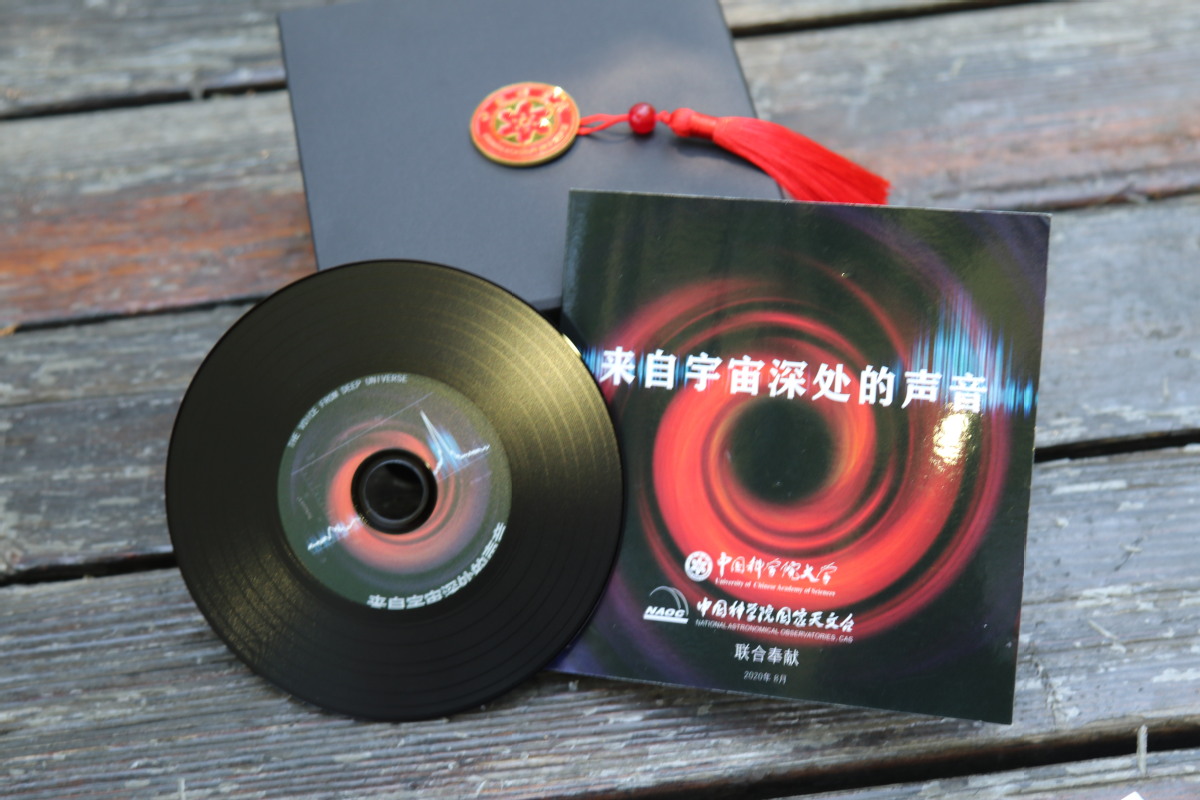University's admissions offer out of this world
By ZHANG ZHIHAO | CHINA DAILY | Updated: 2020-08-15 07:34

College admissions officers in China have jazzed up the offer packages sent to prospective freshmen this month with items ranging from fancy posters to motivational books. But one university's effort to entice high school graduates was, quite literally, out of this world.
On Monday, prospective freshmen offered places at the University of the Chinese Academy of Sciences received a black vinyl disk with their offer letter containing the sounds of 15 pulsars-extremely dense and magnetic remnants of massive stars deep in the universe that spin and shoot powerful jets of radiation from their poles.
Pulsars, also known as rotating neutron stars, are so dense that a teaspoon of matter from them would weigh over a billion metric tons, according to NASA. Since they emit bright, rotating streams of radiation, pulsars are often regarded as the lighthouses of the universe, with some scientists saying they could be used for navigation during interstellar travel.
Students and faculty from the university recorded the signals using the Five-hundred-meter Aperture Spherical Telescope in Guizhou province, the world's largest single-dish radio telescope.
The signals, 13 of which were released publicly for the first time, were processed into audible samples, with some sounding like the beating of a baby's heart and others like an air horn, the crackle of a firecracker or a galloping horse.
The university's offer package went viral on Chinese social media this week, with its hashtag generating over 110 million views on the Sina Weibo micro-blog platform by Friday.
Li Shushen, the university's president, said in a letter to prospective freshmen that the "echoes of the universe" were meant to let them physically experience the scientific progress the nation has made, and encourage them to answer the call of duty to remain curious and eager to learn and explore science and innovation.
Li Di, FAST's chief scientist and a professor at the university, said the latest and best data collected by the telescope had been presented to new students as a gift.
"The best astronomical instruments are actually built for the next generation of astronomers," Li said in a welcome video to freshmen. "Science is a craft, and the best telescope should be wielded by the most meticulous and capable scientists. This responsibility will rest on your shoulders."
























